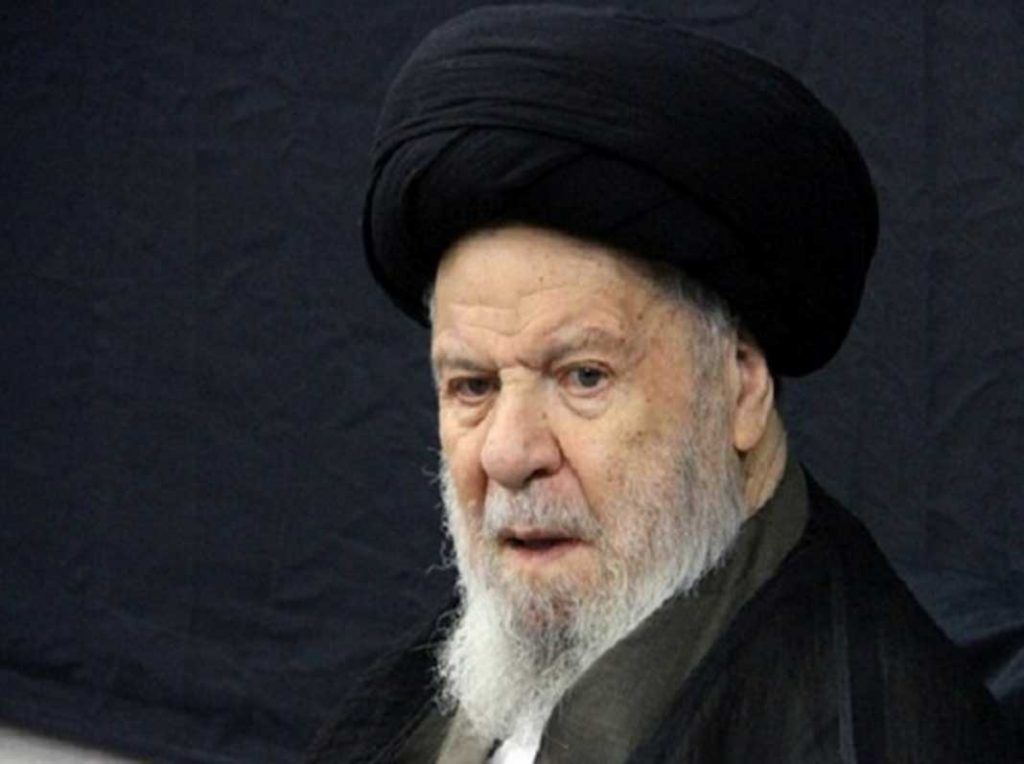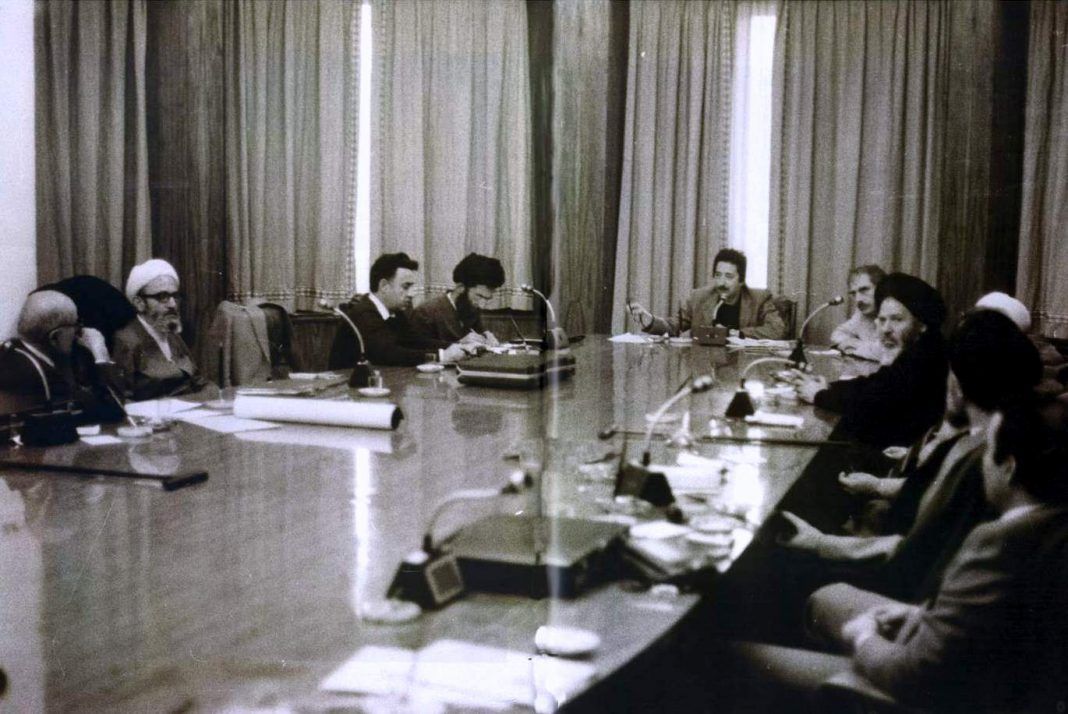By: Potkin Azarmehr
November 23, 2016
Grand Ayatollah Moussavi-Ardebili who died today aged 91, was one of the pillars of the 1979 Islamic revolution in Iran. For eight years between 1981-1989, as the head of Iran’s Supreme Court, he was the highest judicial authority in the Islamic Republic during the harshest years of the post-revolution religious dictatorship in Iran.
The massacre of political prisoners in Iran in 1988, took place when Mousavi-Ardebili was the head of the Supreme Court. More than 5000 political prisoners, some barely in their teens, who were sentenced to prison sentences and not execution, were summarily re-tried by kangaroo-courts and asked two simple questions, “do you believe in God?”, “Are you prepared to publicly denounce your political organisation?”. Unknown to the prisoners, if the answer to any of those two questions was “no”, they would be taken next door and executed. Their bodies were never returned to their families and were dumped in mass graves.
Moussavi-Ardebili in his later years however, was not the same man as he was in the 1980s. The huge burden of the guilt he suffered manifested itself in his later years.
During the 2009 post-election protests in Iran, Ayatollah Ardebili, issued several public statements pointing out the need to address people’s rightful demands and asking for the violent crackdown against the protesters to be stopped. His statements were harshly rebuked by the Supreme Leader, Ali Khamenei and other hardline clerics.

Four years ago, Ardebili wrote a public letter, in which, he apologised for his role in the Islamic revolution of 1979. In his public letter he expressed remorse by saying:
“I speak on my own behalf, I am worried about what I have done and what I should have done. If our actions were correct, we would not be in this situation today, but I believe all of us, all officials, past and present, should apologise to the people. This [apology] is even more necessary for those who wear the clerical cloth”
In the last years of his life, Ardebili seemed to have finally realised the harms done to religion itself by mixing it with politics:
“If this revolution is lost, as well as all the opportunities that will be lost for the people, the reputation and credibility of the Shia clergy will be lost too. Our actions and shortcomings have nothing to do with the enlightened religion of Islam and the school of Shia, but nevertheless thats not how people will make their judgements, if they see us do evil they will blame the religion itself”
On the massacre of the Iranian political prisoners in 1988, Ardebili said in an interview:
“I was against it! I even wrote three letters and protested. I had nothing to do with those executions…I don’t know what to say! But the memories of those executions never leave me and I can never find a lawful justification for them. Those poor victims had already been tried and rightly or wrongly were already sentenced to prison and they were in middle of serving their sentences, suddenly they would execute someone who was due to be freed the next day. I don’t know what logic can explain that?
Ardebili added:
“A friend came to see me and told me, two of his brothers were prisoners in 1988 and their sentences were due to end on Saturday, when he went to prison on Saturday to take them home, he was told his brothers had been executed and he received their clothes only”
In the interview, he also mentions one of the judiciary judges whose own son was executed “Mr. Marvi, who was the deputy in the judiciary at the time once came and said ‘I am a judge in this system myself, just for once I want to see my son’s files and know what he was accused of?’. They finally gave him the file, it contained just a few pages from his son’s diary. On one page of his diary he had written he had gone to hear a speech by Massoud Rajavi [the leader of the MeK] in the morning and later in the evening he had gone to listen to Ayatollah Beheshti [one of the founders of the Islamic revolution] speak”
Writing about all this, I can not but think about two recollections. One is the only time I met Jimmy Carter’s security advisor, Gary Sick, ten years ago in London. To my utter disbelief Sick justified the 1988 executions, saying “it was right to execute them as they could have caused instability in the country after they were freed”. I am just amazed that the Ayatollah who was the head of Iran’s Supreme Court at the time is so grieved by the event and remorseful by those executions, yet a former US official, the darling of some of the American liberals, thinks the executions and the loss of so many innocent lives was somehow justified!
The second recollections that comes to my mind was a religious-historic drama I watched on state TV before 1979 during the Shah’s time, when I was a kid. The program moved me profoundly. It was based on the story of how two young children of a Shia saint, Moslem-ibn-Aqil, were innocently murdered after the battle of Karbala and how the burden of the atrocity caught up with the man who was responsible for their imprisonment. The program was titled “when the henchman weeps”.


